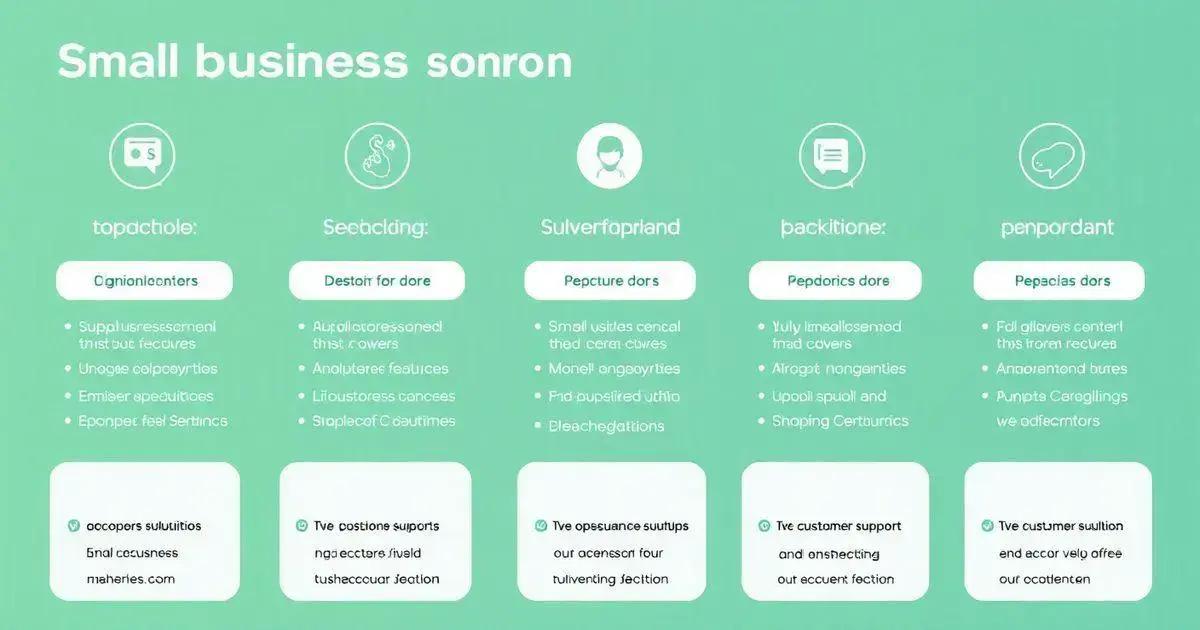The impact of fintech on small businesses is reshaping the financial landscape, driving innovation and efficiency. As technology advances, businesses are finding new ways to streamline operations and improve financial management. Fintech solutions offer automation, faster transactions, and enhanced security, allowing small businesses to compete more effectively.
From improved cash flow management to easier access to funding, fintech provides powerful tools to support growth. Digital payment systems, lending platforms, and accounting software help businesses operate more efficiently while reducing costs. However, challenges such as data security, compliance, and technological adoption must be carefully managed.
Understanding how to choose the right fintech solutions is key to leveraging these benefits while mitigating risks. By exploring the latest innovations and best practices, small businesses can stay ahead in an increasingly digital world. Keep reading to discover how fintech is transforming small business success.
Understanding Fintech: A Definition
Understanding fintech on small businesses is crucial for those looking to enhance their financial operations. Fintech, which stands for financial technology, refers to the use of software, applications, and online services to manage and streamline financial processes. This innovation bridges the gap between technology and finance, allowing small businesses to leverage advanced tools to improve efficiency and access to capital.
What Makes Fintech Unique?
One of the standout features of fintech on small businesses is its ability to simplify complex financial processes. Traditional banking systems often involve lengthy procedures and paperwork, but fintech solutions can automate many of these tasks. Whether it’s managing bank accounts, processing payments, or applying for loans, fintech platforms provide user-friendly interfaces that make financial management easier.
The Scope of Fintech
Fintech on small businesses covers numerous services, including payment processing, peer-to-peer lending, investment management, and even budgeting apps. These services are not only designed for big corporations but also cater specifically to the needs of small businesses. This versatility makes fintech an essential asset in today’s digital economy.
Why It Matters for Small Businesses
For small business owners, understanding fintech on small businesses can lead to better financial decisions. By embracing these technologies, businesses can improve cash flow management, reduce operational costs, and access various financial tools that were previously out of reach. This creates opportunities for growth and innovation.
By exploring the benefits and challenges of fintech on small businesses, entrepreneurs can make informed choices and stay ahead in the competitive financial landscape. Keep reading to learn how fintech is transforming small business success.
Benefits of Fintech on Small Businesses

Benefits of fintech on small businesses are numerous and impactful. By adopting fintech solutions, small businesses can enhance their operations and financial health significantly.
Improved Efficiency and Speed
Fintech platforms automate financial processes, reducing manual work and errors. This improvement in efficiency means small businesses can process transactions faster and focus on growth.
Cost Savings
Using fintech services can lower costs for small businesses. Traditional banking often comes with high fees for services. Fintech offers more affordable options, allowing businesses to save money and allocate resources effectively.
Access to Capital
Fintech companies provide various financing options, including peer-to-peer lending and crowdfunding. This easy access to capital helps small businesses secure necessary funds without the lengthy processes of traditional banks.
Enhanced Cash Flow Management
With financial management tools offered by fintech, small businesses can monitor cash flow in real time. This visibility helps owners make better decisions and avoid cash shortages.
Easier Payment Processing
Fintech solutions streamline payment processing through mobile payments, online invoicing, and direct transfers. This convenience can enhance customer experience and encourage repeat business.
Challenges Small Businesses Face with Fintech
Challenges small businesses face with fintech can be significant, particularly for those not fully versed in technology. Understanding these challenges is important for successful implementation.
Data Security Concerns
With the increase in digital transactions, data security becomes a primary concern. Small businesses often lack the resources to implement robust cybersecurity measures, making them vulnerable to data breaches.
Technological Knowledge Gap
Many small business owners may not have the necessary tech skills to effectively use fintech solutions. This knowledge gap can lead to improper use of tools, resulting in lost opportunities or financial errors.
Integration Issues
Fintech solutions may not always integrate seamlessly with existing systems. This lack of compatibility can create inefficiencies and complicate financial management for small businesses.
Cost of Adoption
While fintech can save money in the long run, the initial costs of adopting new technology can be daunting. Small businesses may hesitate to invest without guaranteed returns.
Regulatory Compliance
Regulations around fintech can be complex, and small businesses must stay compliant to avoid penalties. Understanding and adhering to these rules can be a challenge, especially for those without legal and financial expertise.
How to Choose the Right Fintech Solutions

How to choose the right fintech solutions involves careful consideration of several factors to ensure that the selected tools meet the needs of a small business effectively.
Identify Your Business Needs
The first step in choosing fintech solutions is identifying specific business needs. Whether it’s enhancing payment processing, improving cash flow management, or simplifying invoicing, understanding what your business requires will guide your selection.
Evaluate the Features Offered
Not all fintech solutions are created equal. Look for features that align with your needs, such as user-friendly interfaces, mobile accessibility, reporting tools, and integration capabilities. The right features can make a significant difference in day-to-day operations.
Check for Security Measures
Data security should be a top priority. Ensure that the fintech provider implements strong encryption, data protection, and compliance with regulations. This will help safeguard your business and customer information from potential threats.
Read Reviews and Get Recommendations
Before making a decision, read reviews from other small business owners who have used the fintech solution. Hearing from those with firsthand experience can offer valuable insights. Seeking recommendations from peers can also help identify trusted providers.
Consider Customer Support
Good customer support is essential for any technology. Choose a fintech provider that offers reliable customer service options, whether through phone, chat, or email. Effective support will help you navigate any issues that arise during implementation and usage.
The Future of Fintech in Small Business
The future of fintech in small business looks promising as technology continues to evolve. Fintech is set to shape how small businesses operate, offering new opportunities for growth and efficiency.
Increased Automation
Automation is expected to grow in fintech, with more tools helping small businesses reduce manual tasks. This will allow owners and employees to focus on core business functions while technology handles routine processes.
Personalised Financial Services
As fintech evolves, small businesses will benefit from increasingly personalised financial products. Using data analytics, fintech companies can provide services tailored to meet individual business needs, enhancing customer satisfaction.
Integration of Artificial Intelligence
Artificial Intelligence (AI) will play a larger role in fintech platforms. By integrating AI, small businesses can automate decision-making, predict cash flow, and improve customer interactions through intelligent chatbots and personalised experiences.
Focus on Security Innovations
With rising concerns over data security, fintech solutions will likely prioritise advanced security measures. Future fintech offerings may include biometric authentication and improved encryption to protect small business data.
Collaboration with Banks
Collaboration between fintech companies and traditional banks is anticipated to grow. These partnerships will combine the strengths of both sectors to provide small businesses with better financial solutions, reducing barriers to access.
The Transformative Power of Fintech on Small Businesses
The impact of fintech on small businesses is profound, offering substantial benefits that can enhance growth and operational efficiency.
While challenges exist, the right fintech solutions can address these issues effectively, enabling small businesses to thrive in a competitive landscape.
By understanding how to choose the right tools and preparing for the future of fintech, small businesses can leverage technology for financial management, improved customer experiences, and streamlined operations.
Ultimately, embracing fintech is not just a trend; it’s a vital step towards ensuring sustainability and success in the evolving business environment.
Check out our article on Financial Inclusion to explore how it’s helping to create equal access to financial services for everyone.
